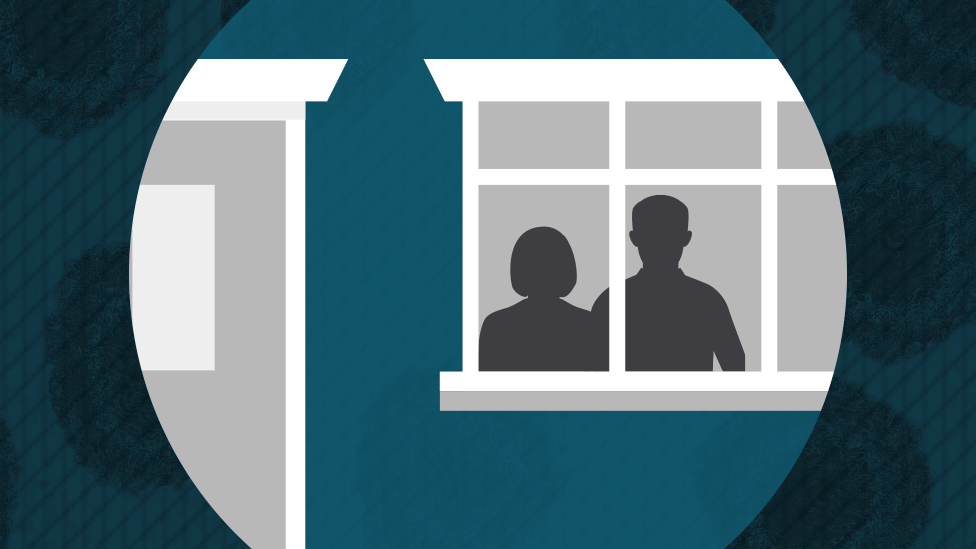Covid: Shielders could become 'prisoners in own home'
- Published
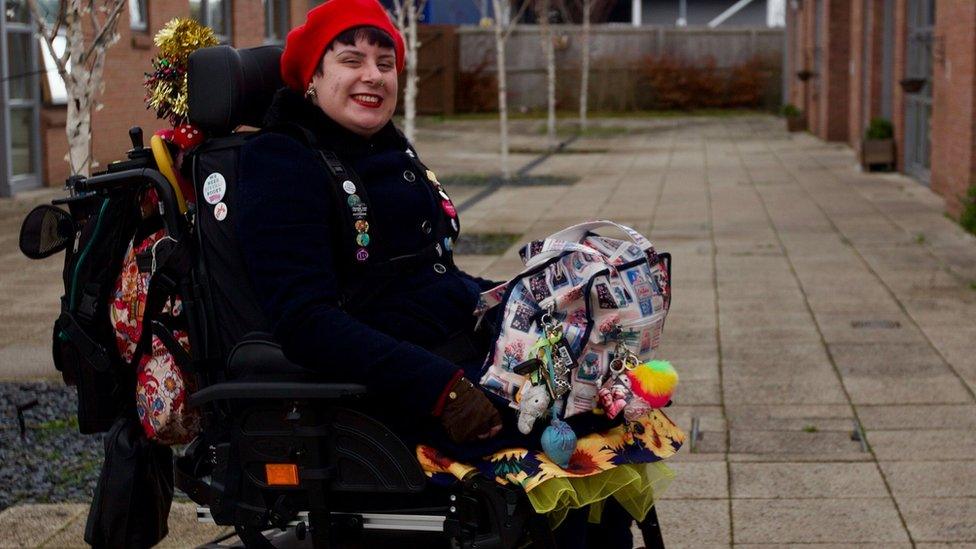
Amy-Claire Davies said she and other shielders in Wales feel anxious about going outside
People who have been shielding could become "prisoners in their homes" due to a loss of confidence after months indoors, an expert has said.
Dr Deborah Morgan, a leading specialist on loneliness, external, said a "national strategy" was needed to help people reintegrate into their communities.
The Welsh government said on Wednesday that 138,500 people shielding in Wales would no longer need to.
However, they have been advised to limit their contact and work from home.
Amy-Claire Davies, 26, has been shielding with her parents in Swansea since the start of the pandemic.
Medically, she is extremely vulnerable. She is living with a life-limiting condition which means she suffers multiple agonising spasms.
She feels anxious about going outside, a fear she said was shared by other young people like her living with life-limiting conditions.
She said: "I think I'd struggle going anywhere that was particularly crowded, I would get quite anxious about that, because it's been ingrained as a survival instinct over the past year and I haven't been in a crowded space for the past year. It would be quite overwhelming.
"A lot of the young people I know are at a real risk of struggling to go back out into the world in the way that we were before."
That concern is shared by experts who think some people might never leave their homes again unless they get help.
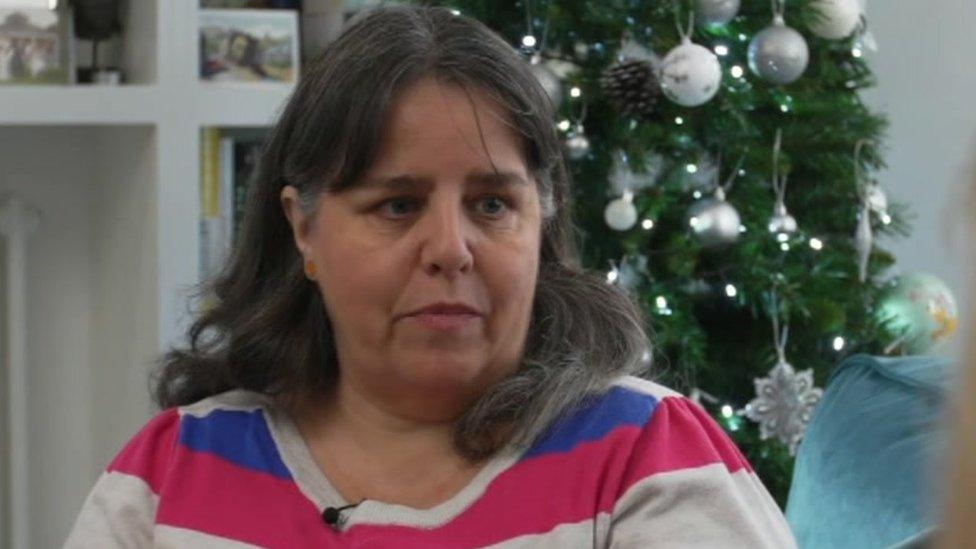
Dr Deborah Morgan said young people are "just too fearful to go back out again"
Dr Morgan, from the Centre for Innovative Ageing at Swansea University, said without the right support they might find a return to the outside world too daunting.
She said: "When we talk to younger people, as well as older people, about this experience that's just the way they're feeling, they're just too fearful to go back out again.
"These are people who have been very active in social groups and have been part of their communities but they're now really fearful of going back out there.
"We have an economic strategy about how we're going to recover from this, and I really think we need a strategy for the social aspect of this, not just the economic."
Work is already ongoing to introduce some of the most vulnerable groups to life in a world with face masks, social distancing and contactless payment.
The Get There Together project is a Wales-wide NHS project designed to show people with dementia what the world looks like now.
A series of films and written resources have been produced in English and Welsh showing how shops, libraries and public transport has adapted since the start of the pandemic.
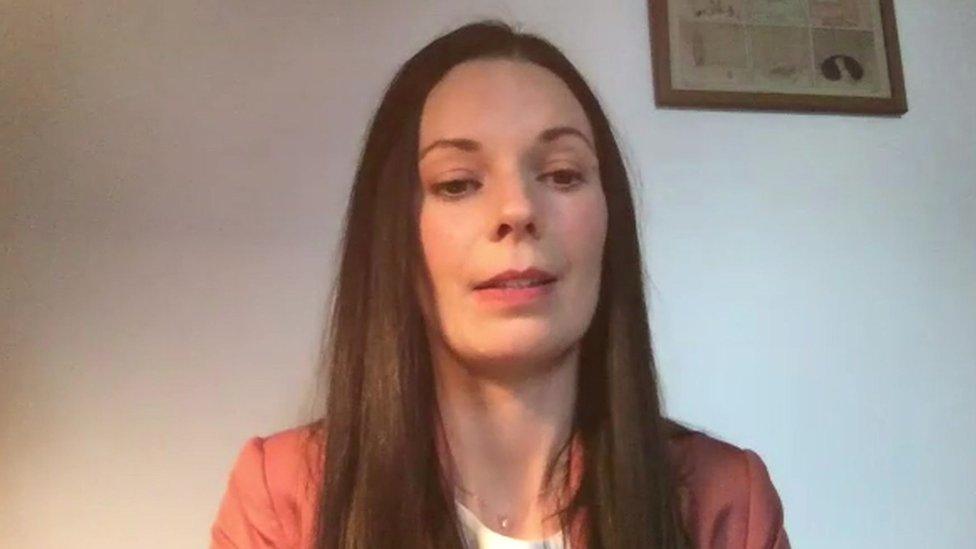
Dr Natalie Elliott said the pandemic has had a huge impact on people living with dementia
Dr Natalie Elliott is the allied health professional lead for dementia at Cardiff and Vale University Health Board and is leading the project.
"The feedback we were getting from people with dementia is that they were very fearful of going back out into the community," she said.
"One of the ideas we had was would it be useful to create resources, video clips walking people through visits to places in their communities showing what it is like and what safety measures are there to support people and this allows people to rehearse at home, perhaps with the support of a family member or carer to go through and prepare to feel ready to go out."
The Welsh government said: "Throughout the pandemic, local authorities have worked tirelessly alongside the voluntary and third sector to co-ordinate support to a wide range of vulnerable groups. They will continue to play an important role in supporting the most vulnerable in our communities.
"During the pandemic we have introduced a number of new initiatives to support vulnerable people, including a national telephone befriending service for older people and the Looking Out For Each Other Safely campaign, which provides advice about how to stay in contact to prevent feelings of loneliness or isolation."
- Published31 March 2021
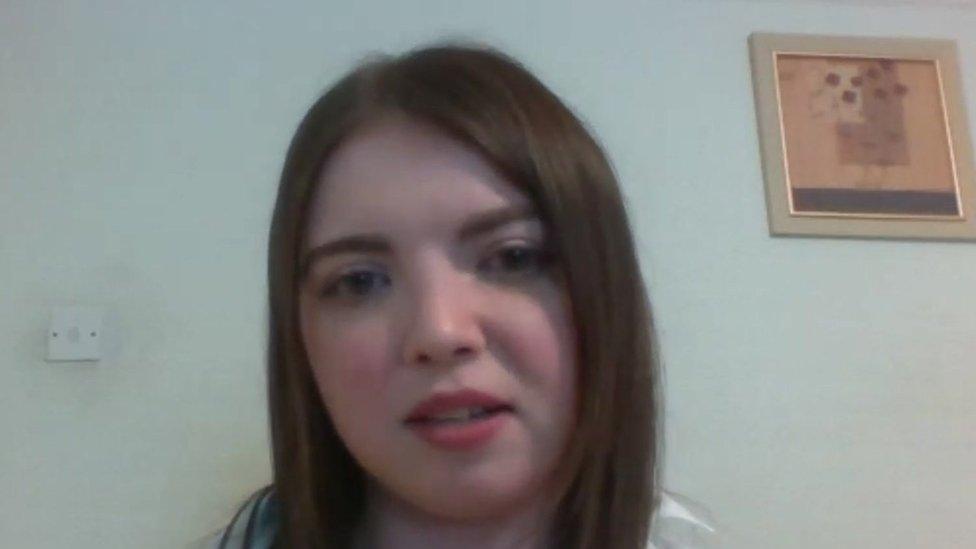
- Published31 March 2021
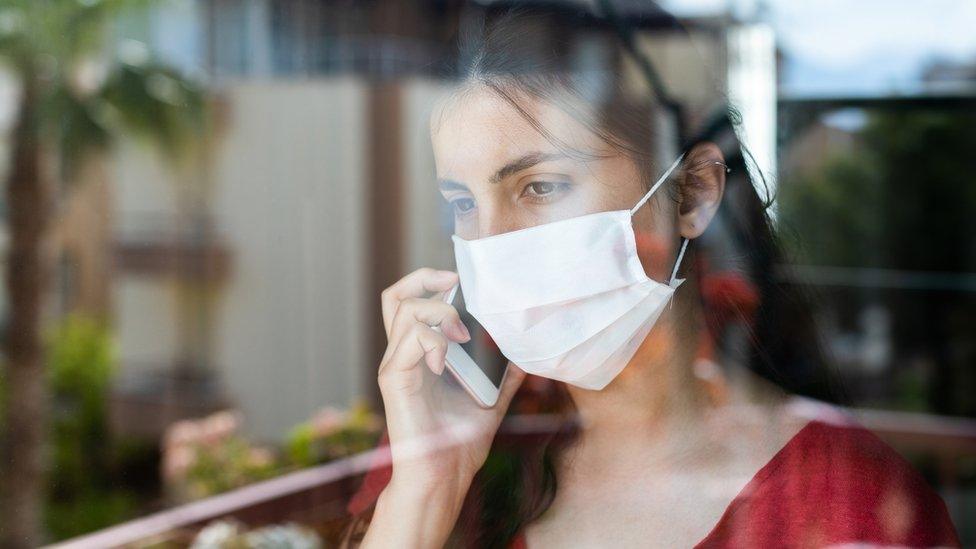
- Published4 February 2021
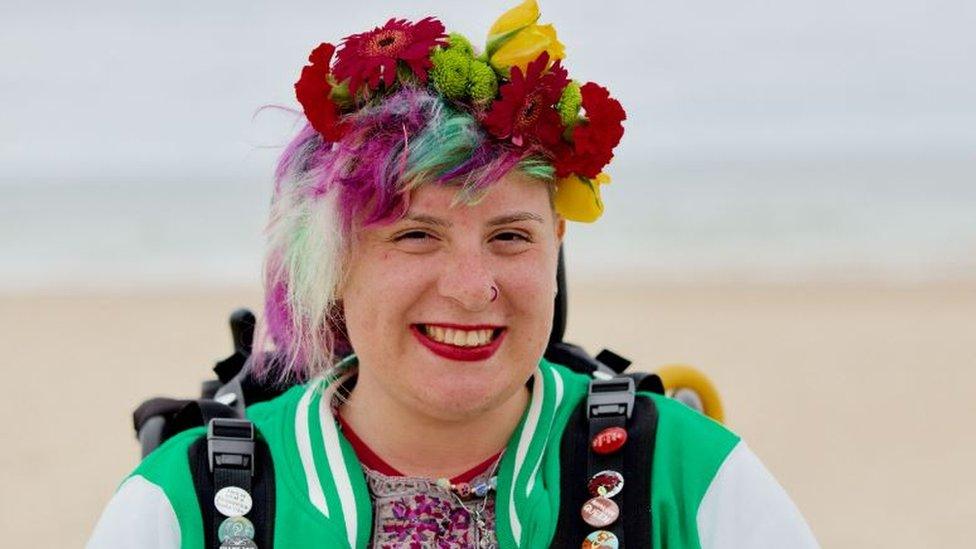
- Published26 March 2021
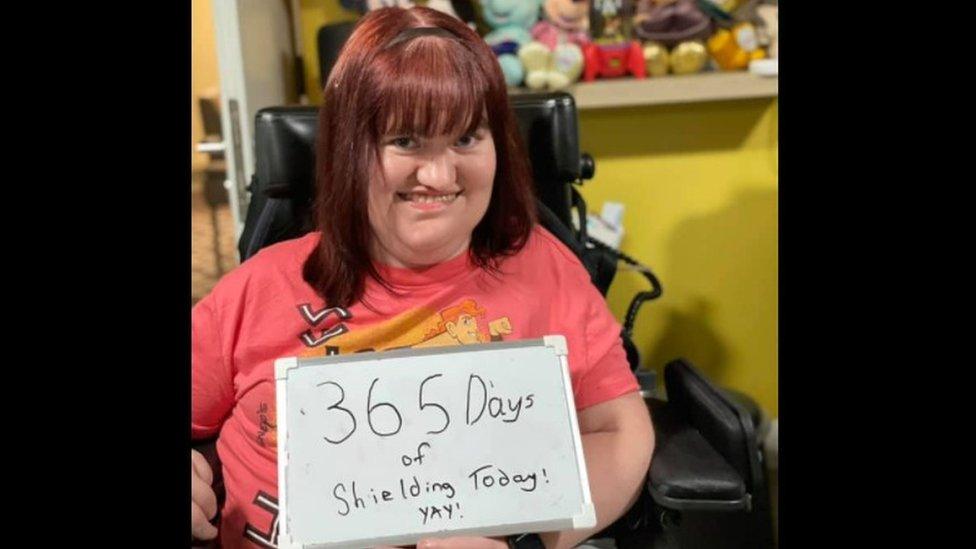
- Published13 July 2021
